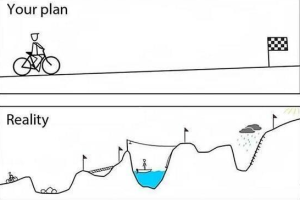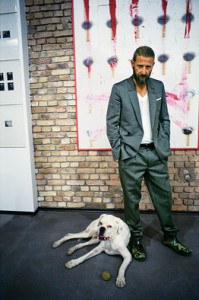I had the pleasure of interviewing Dr. Art Markman regarding his new book Smart Change. Some great insights on how to craft meaningful behavior change.
In the first chapter of your book, you note the success of the Cleveland Clinic in the area of behavior change. What would you say to those C-level executives who’ve tried some concepts to address wellness and behavior change, but have not met with great success?
The central problem with behavior change is that the motivational system is so efficient at promoting the habits people have already developed. The Cleveland Clinic succeeded, because it instituted a comprehensive program of wellness aimed to help people develop healthier daily behaviors. When companies institute wellness plans in a piecemeal fashion, they do not attack all of the pressure points on the motivational system that support change. This approach is likely to fail. The lesson from the Cleveland Clinic is that a comprehensive program that supports healthy living ultimately succeeds and that the initial investment leads to long-term cost savings as well as healthier employees.
Is the brain a friend or foe in our efforts to change our personal behaviors?
The brain is remarkably efficient at promoting the habits you have already developed, particularly when those habits lead to outcomes that feel good in the short-term. As a result, your initial attempts to change your behavior make your brain the enemy. Like a Jujitsu master, though, you have to learn to use the brain’s momentum to your advantage. Change your environment to make desirable behaviors easy, and you will naturally start to act in accordance with your new goals. Spend time with people who engage in the behaviors you want for yourself, and you will start to mimic their patterns. Create specific plans for how you will achieve your long-term goals, and you will begin to create new habits that will ultimately make your brain your friend.
Can changing a person’s environment (work, school, community, etc.) be a catalyst for better behavior?
The environment has several influences on better behavior. When your environment is littered with temptations, then you are prone to return to our past patterns of behavior. So, disrupt your environment in ways that make it impossible for you to engage your previous habits. If you are concerned about the amount of time you spend mindlessly browsing the web, then download a new browser that has an interface that differs from the one you are using. Now, you have the opportunity to rethink your internet behavior until you develop a new set of behaviors. People want to minimize the effort they put into many tasks, so making desirable behaviors easy to perform and undesirable behaviors hard to perform has an immediate influence on the way people act.
Explain the difference between a “process goal” versus an “outcome goal.”
When we set goals, we often focus on outcomes–the things we want to achieve. For example, you might decide this New Years Day that you want to lose 40 pounds. There are two problems wit these kinds of outcome goals. First, they do not tell you how to achieve the goal. Second, once you do achieve the goal, it is not clear what you should do next. Rather than focusing on the desired outcome, create a process for living your life that generates the desired outcome as a side-effect of the way you live your life. Focus on cooking new foods, adding exercise to your daily routine, and crocheting while you watch TV rather than mindlessly eating chips. These process goals can be sustained long after you have reached your desired weight, and so you achieve your desired outcome without making it the focus of your efforts.
What’s been your toughest habit to break and what did you learn from the experience?
I had a few tough habits to break. Until I was in my early 20s, I bit my nails. It was an unattractive habit. It was hard to break, though, because it requires *not* doing something. You cannot create a habit that involves not doing a behavior, and so after a few weeks I would always start biting my nails again. In order to break that habit, I had to figure out when I was actually biting my nails. I discovered that I most of the time when I bit my nails, I was sitting around either reading or watching TV. So, I worked to replace the bad habit with new habits. I started buying a lot of desk toys and playing with them at the times that I would normally bite my nails. Eventually, I replaced the bad habit with these new routines. Of course, now my graduate students make fun of me for playing with a slinky while we are meeting…
Art Markman, Ph.D., is Annabel Irion Worsham Centennial Professor of Psychology and Marketing at the University of Texas at Austin, and director of the Masters Program in the Human Dimensions of Organizations. He received his Sc.B. in Cognitive Science from Brown University and his Ph.D. in Psychology from the University of Illinois. He has published over 150 scholarly works on topics in higher-level thinking, including the effects of motivation on learning and performance, analogical reasoning, categorization, decision making and creativity. He is currently executive editor of the journal Cognitive Science and a member of the editorial board of Cognitive Psychology. His previous book, Smart Thinking (Perigee Books) was a bestseller. Art is co-host of a new radio show Two Guys on Your Head produced by KUT radio in Austin. He is on the advisory boards of the Dr. Phil Show and Dr. Oz Show.







